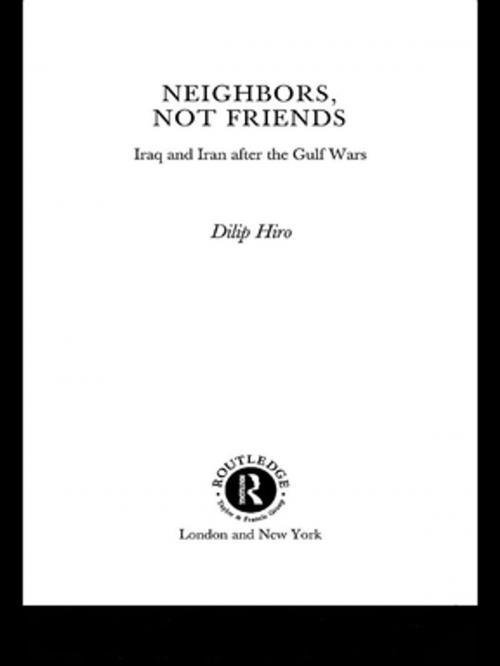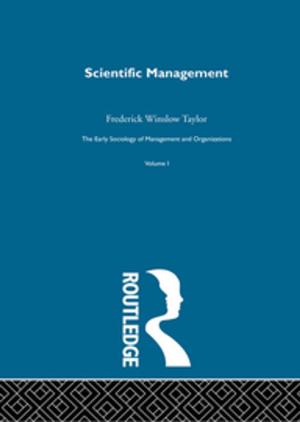Neighbors, Not Friends
Iraq and Iran after the Gulf Wars
Nonfiction, Social & Cultural Studies, Political Science| Author: | Dilip Hiro | ISBN: | 9781134524334 |
| Publisher: | Taylor and Francis | Publication: | September 2, 2003 |
| Imprint: | Routledge | Language: | English |
| Author: | Dilip Hiro |
| ISBN: | 9781134524334 |
| Publisher: | Taylor and Francis |
| Publication: | September 2, 2003 |
| Imprint: | Routledge |
| Language: | English |
This highly controversial and topical book provides the first full, balanced account of how Iraq cheated the UN inspectors on disarmament and how the US manipulated and infiltrated the UN inspection teams and other staff to gather intelligence on Iraq to overthrow Saddam Hussein.
Aimed at the general reader, it follows and assesses the role of Saddam Hussein who became president of Iraq in 1979. Dilip Hiro, an experienced journalist who has written extensively on the region, provides a historical and accessible perspective to the relationship between Iraq and Iran and examines the consequences of internationally significant events such as the death of Ayatollah Khomeini in Iran a year after the end of the 1980-88 Iran-Iraq War and the 1990 invasion of Kuwait by Saddam Hussein.
Providing a full account and analysis of events in Iraq since the 1991 Gulf War, he contrasts the long totalitarianism under Hussein with the evolution of the political-religious system in Iran and the development of its internal politics.
This is an essential overview to the conflicts in the Gulf, and should be read by anyone with an interest in the region, its politics and its interactions with the US and UN.
This highly controversial and topical book provides the first full, balanced account of how Iraq cheated the UN inspectors on disarmament and how the US manipulated and infiltrated the UN inspection teams and other staff to gather intelligence on Iraq to overthrow Saddam Hussein.
Aimed at the general reader, it follows and assesses the role of Saddam Hussein who became president of Iraq in 1979. Dilip Hiro, an experienced journalist who has written extensively on the region, provides a historical and accessible perspective to the relationship between Iraq and Iran and examines the consequences of internationally significant events such as the death of Ayatollah Khomeini in Iran a year after the end of the 1980-88 Iran-Iraq War and the 1990 invasion of Kuwait by Saddam Hussein.
Providing a full account and analysis of events in Iraq since the 1991 Gulf War, he contrasts the long totalitarianism under Hussein with the evolution of the political-religious system in Iran and the development of its internal politics.
This is an essential overview to the conflicts in the Gulf, and should be read by anyone with an interest in the region, its politics and its interactions with the US and UN.















